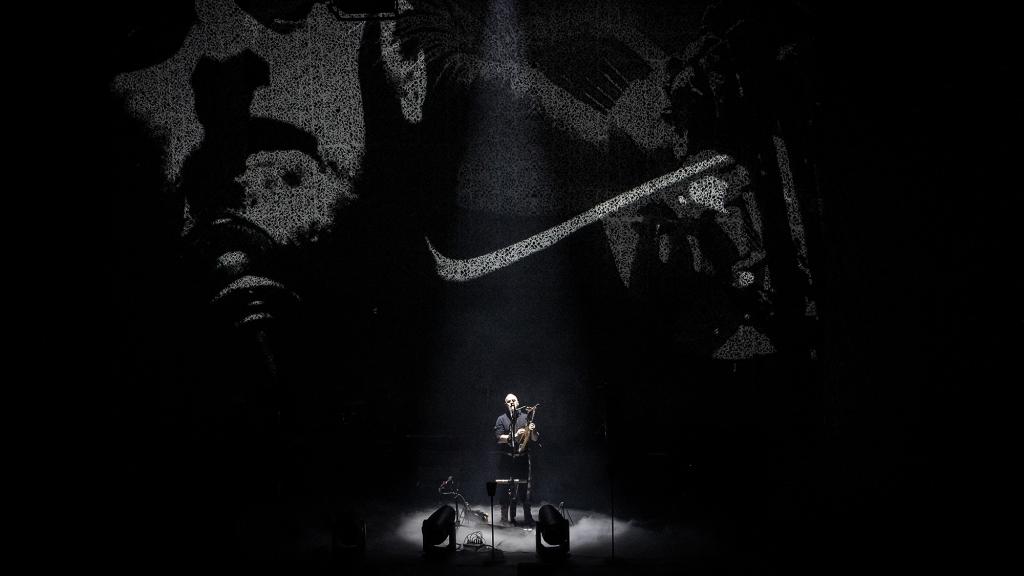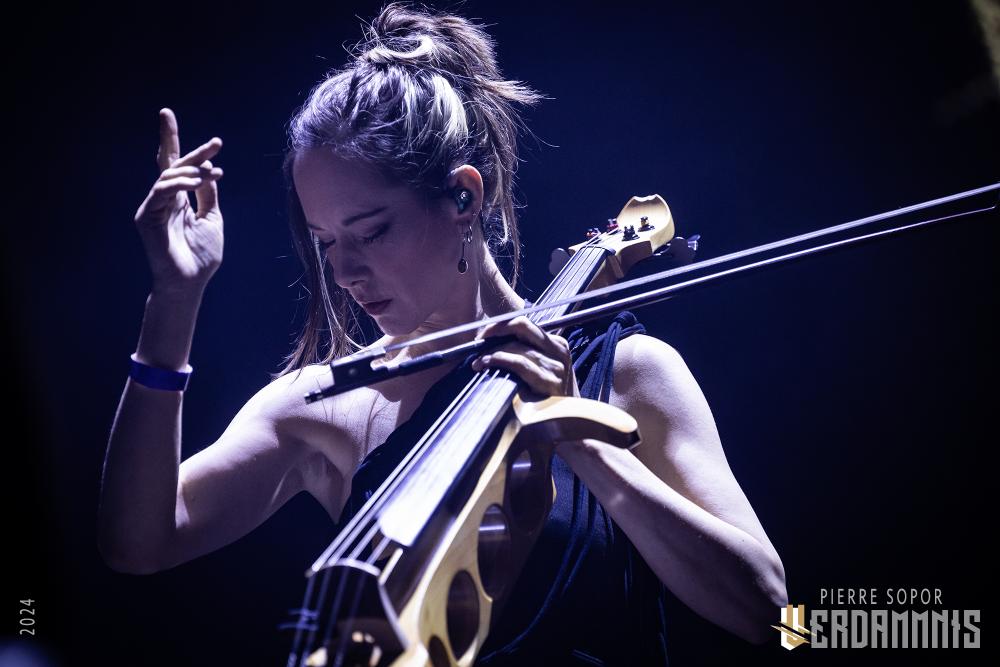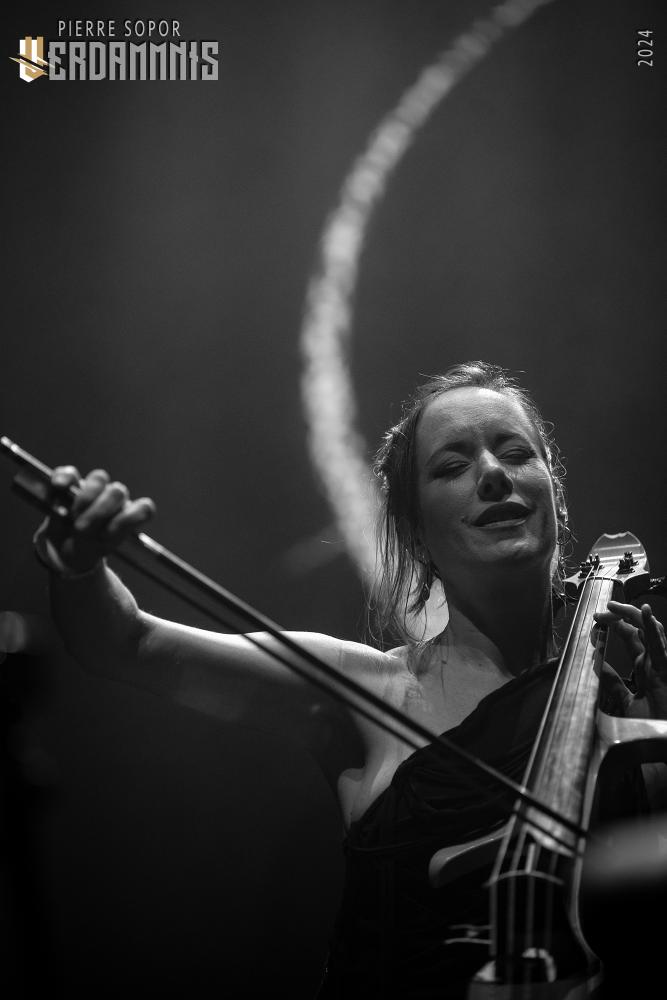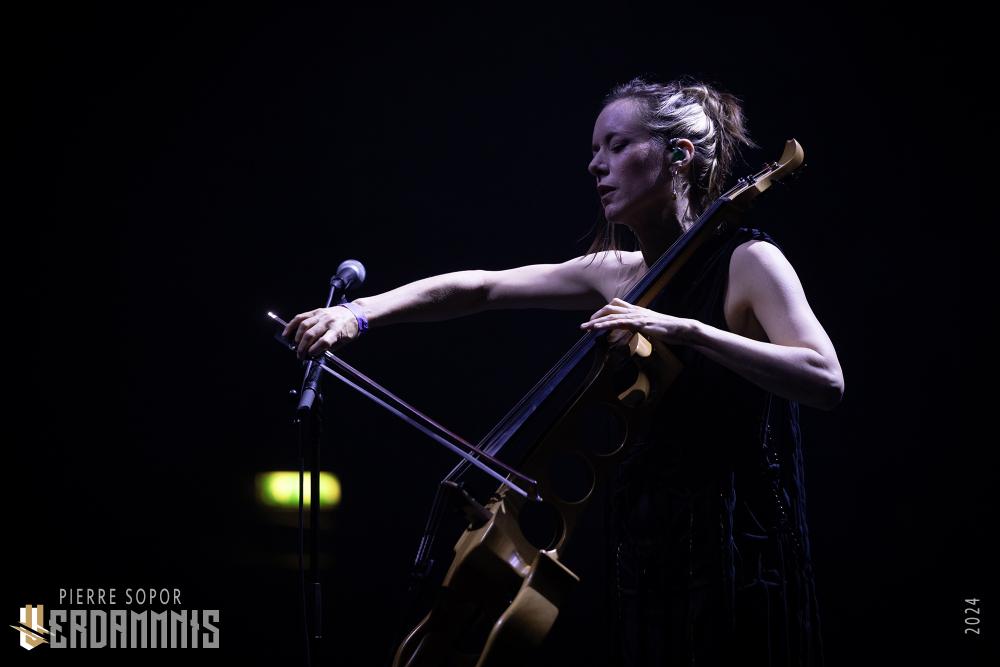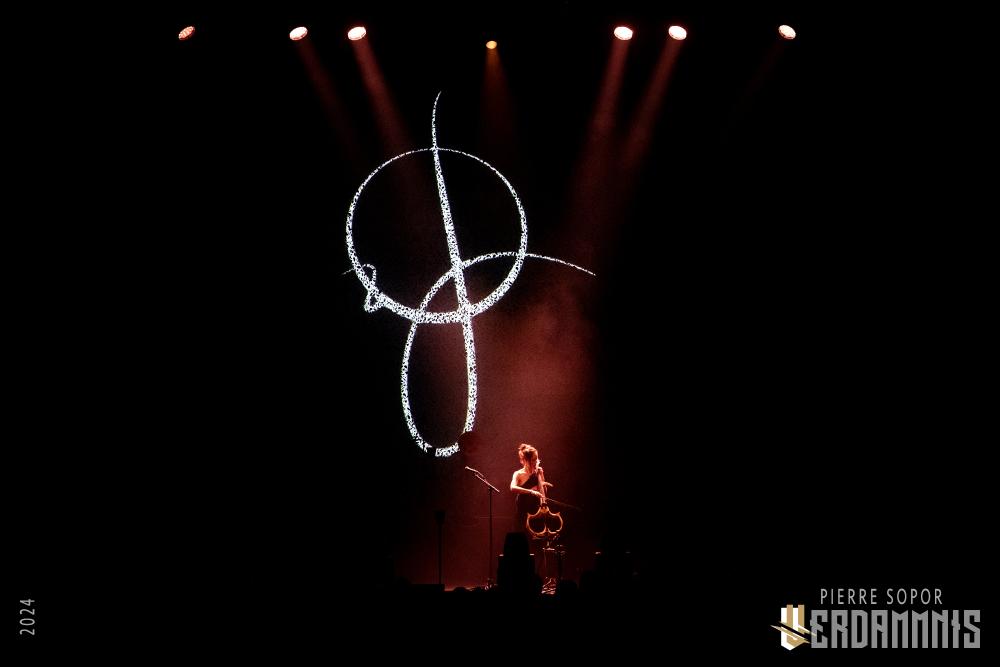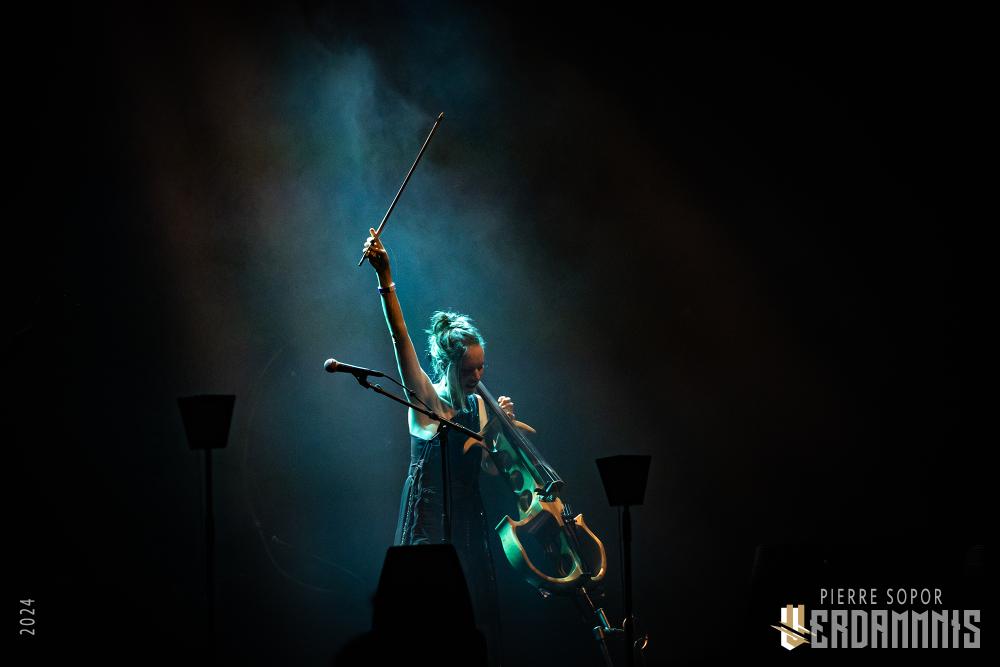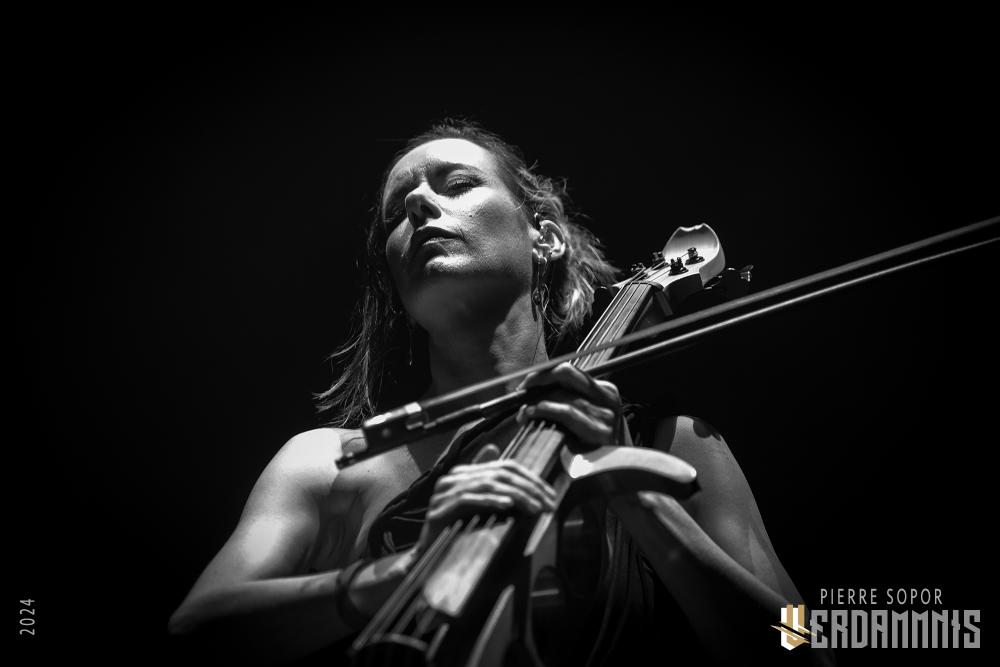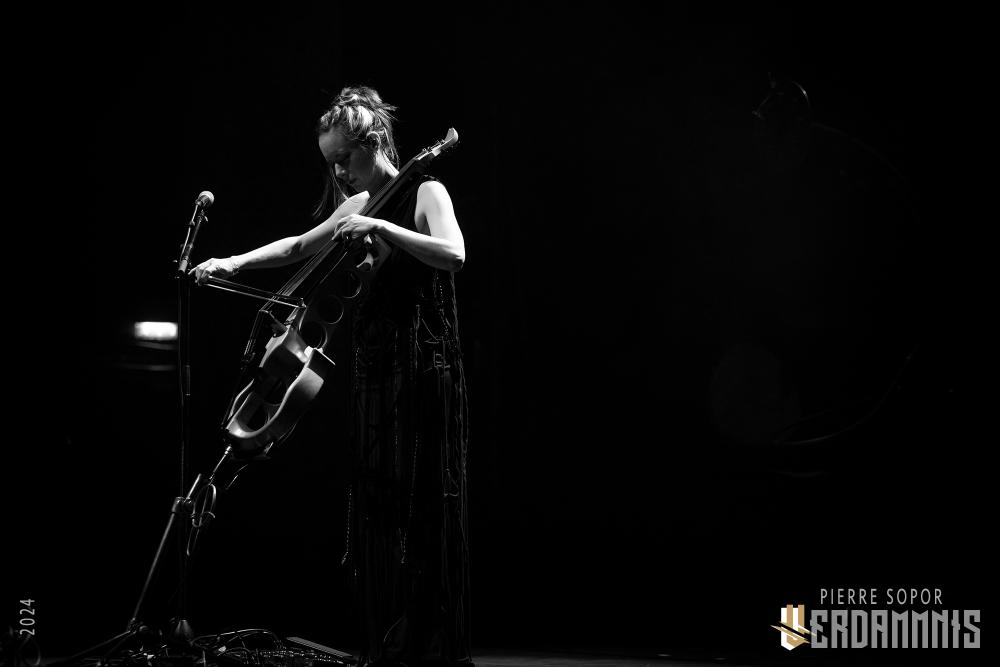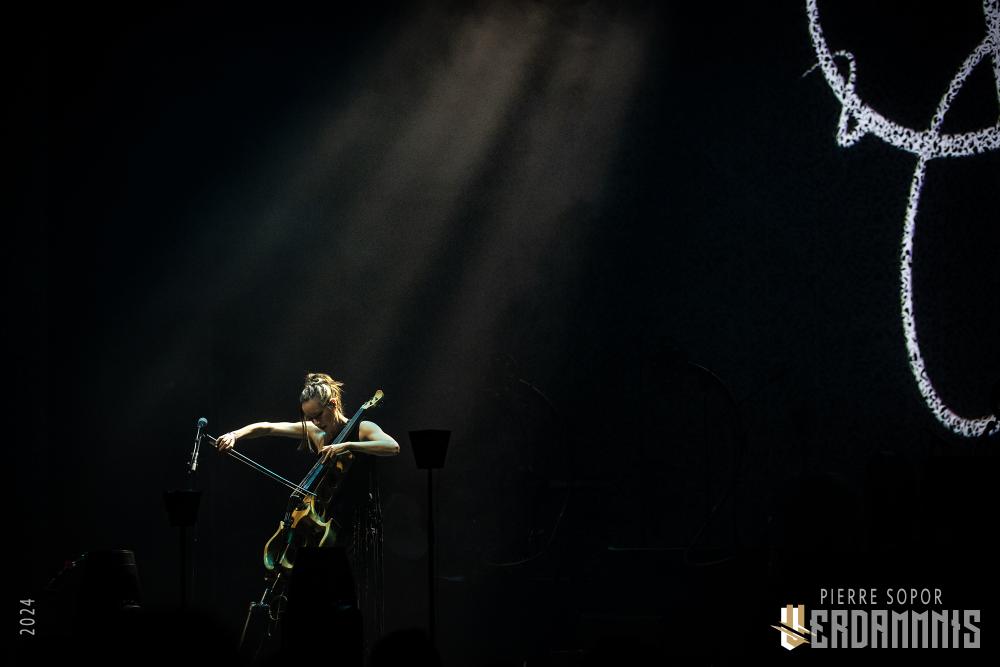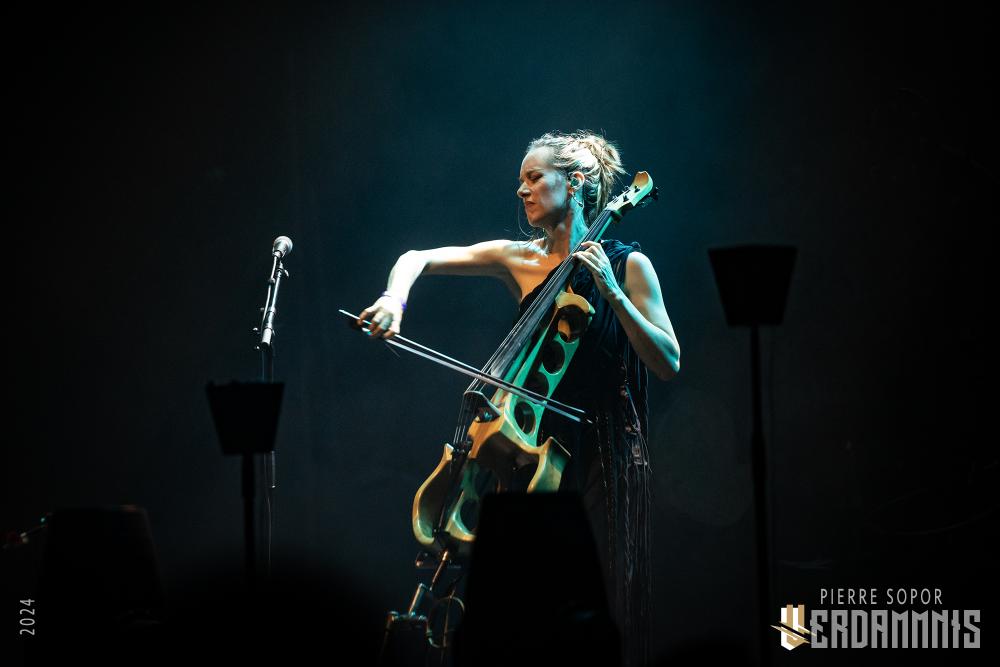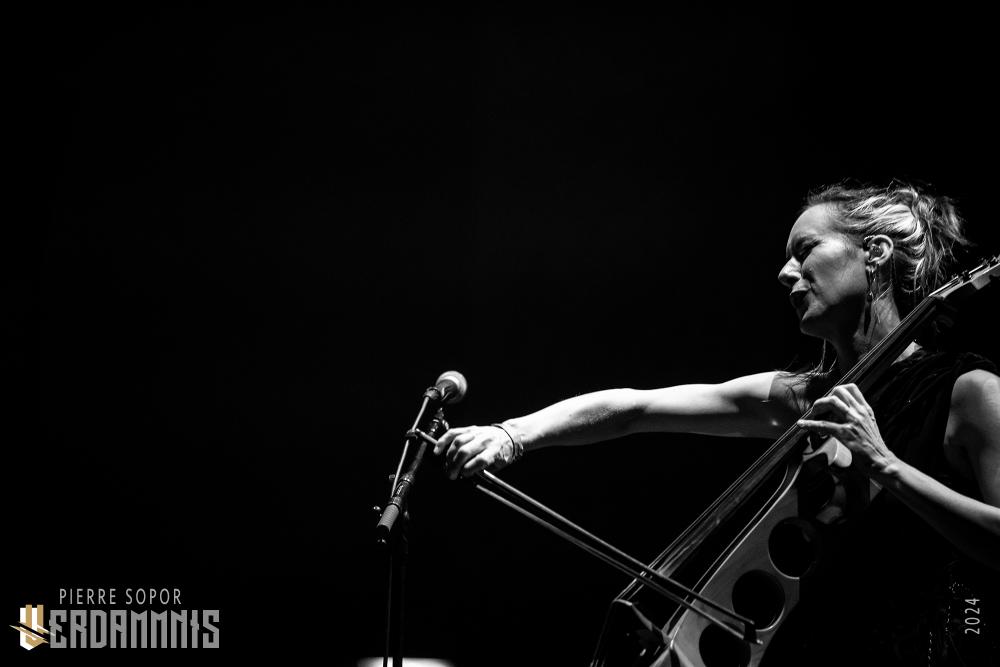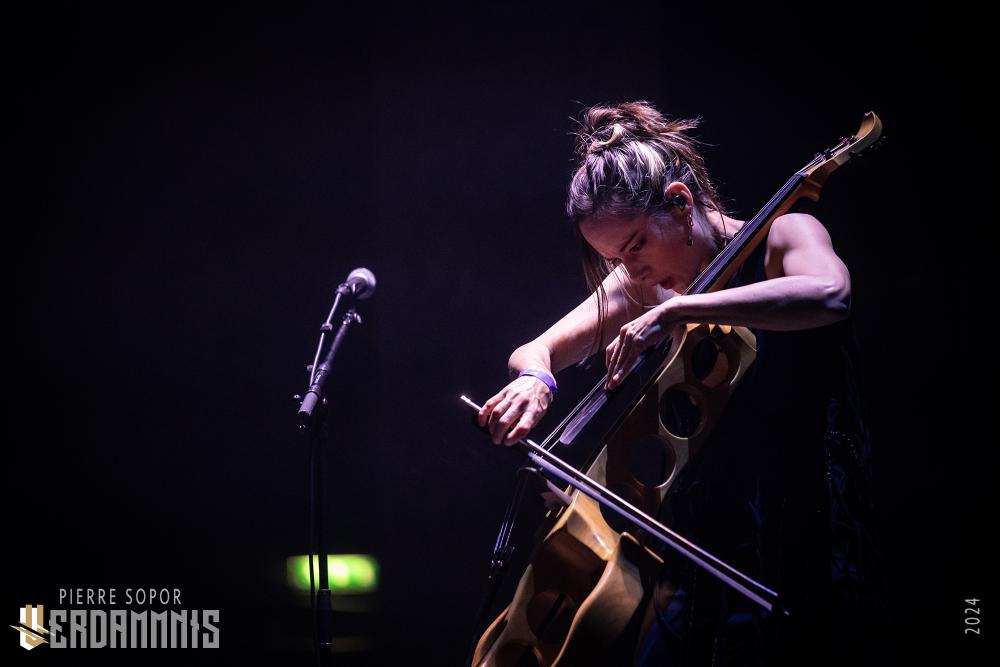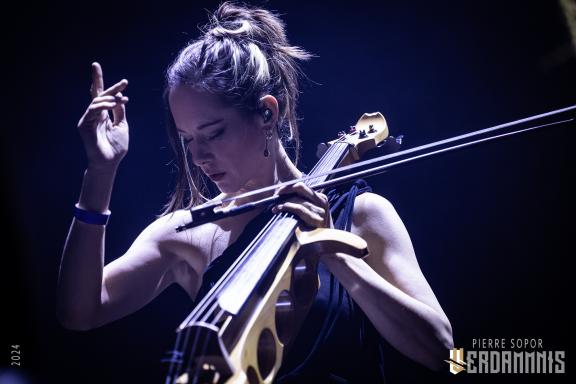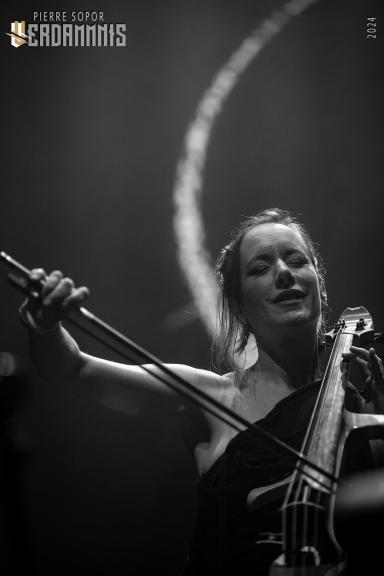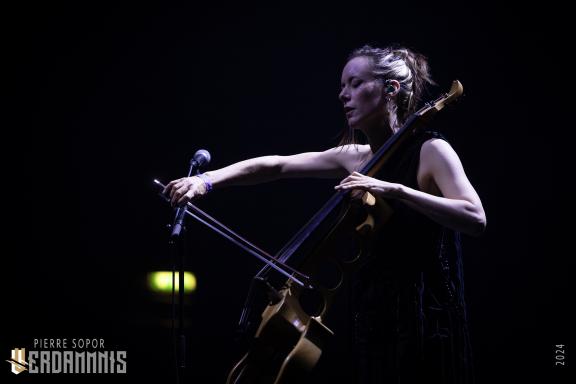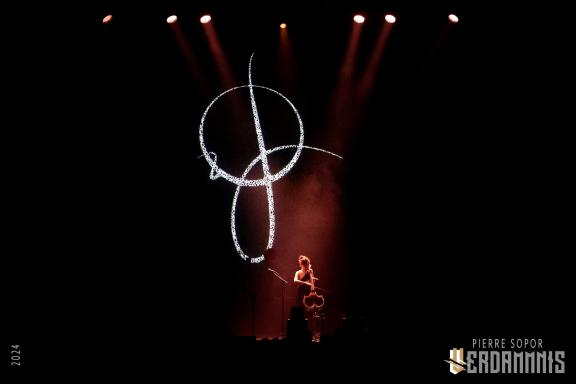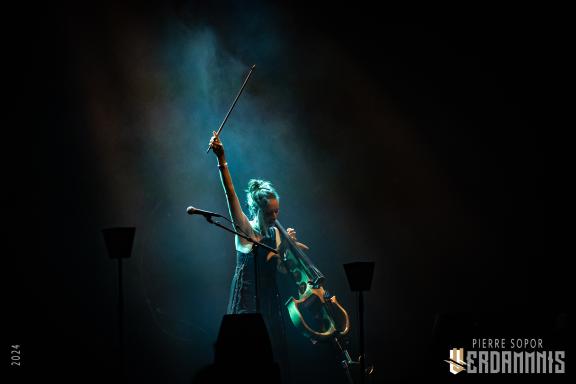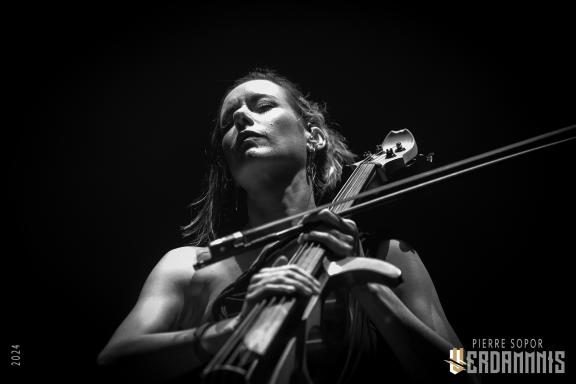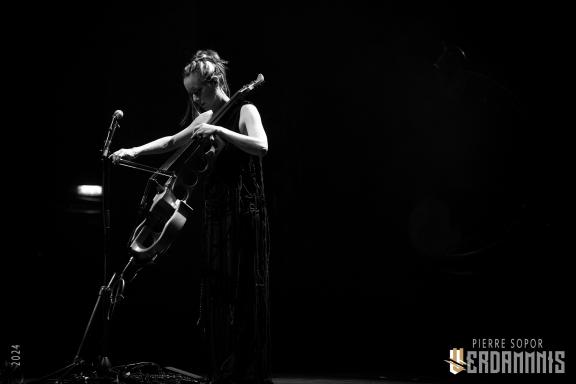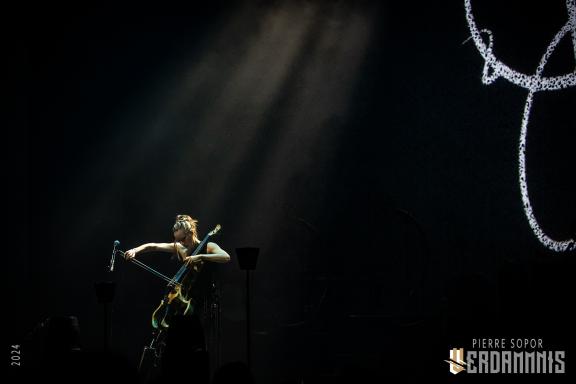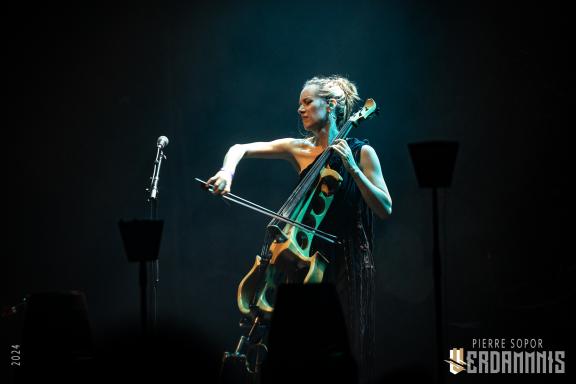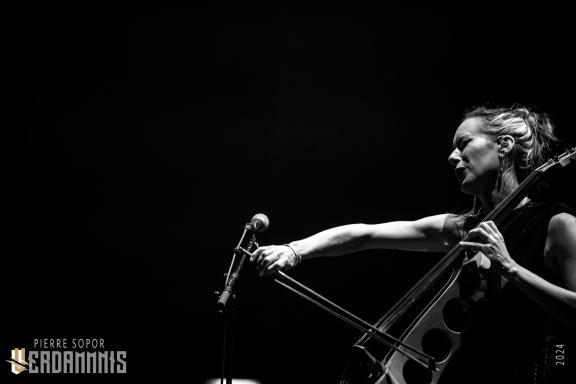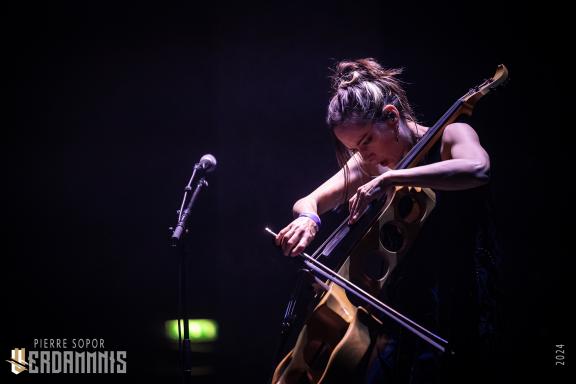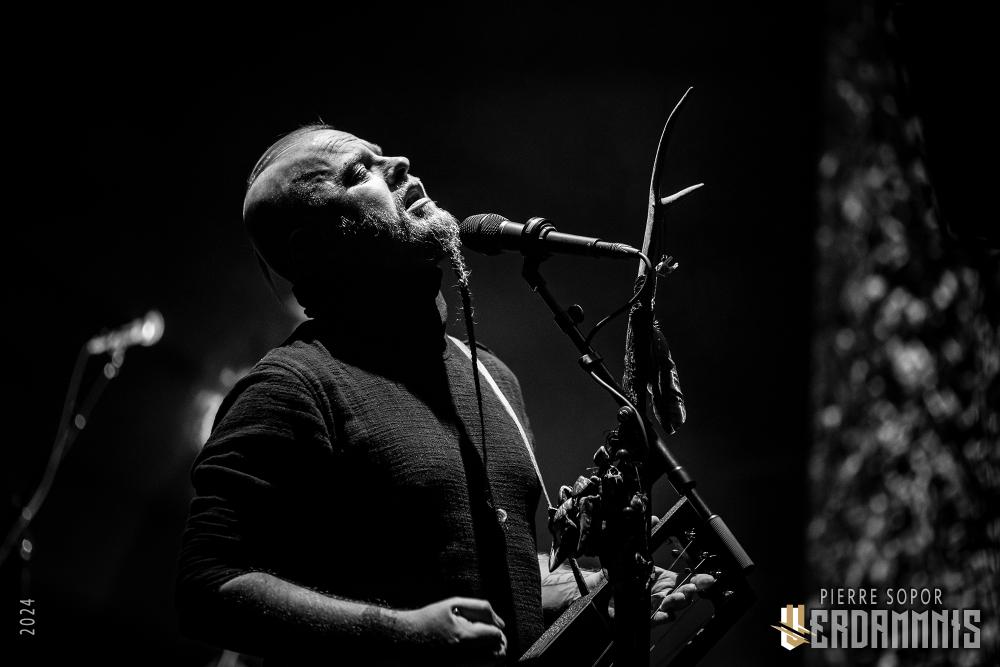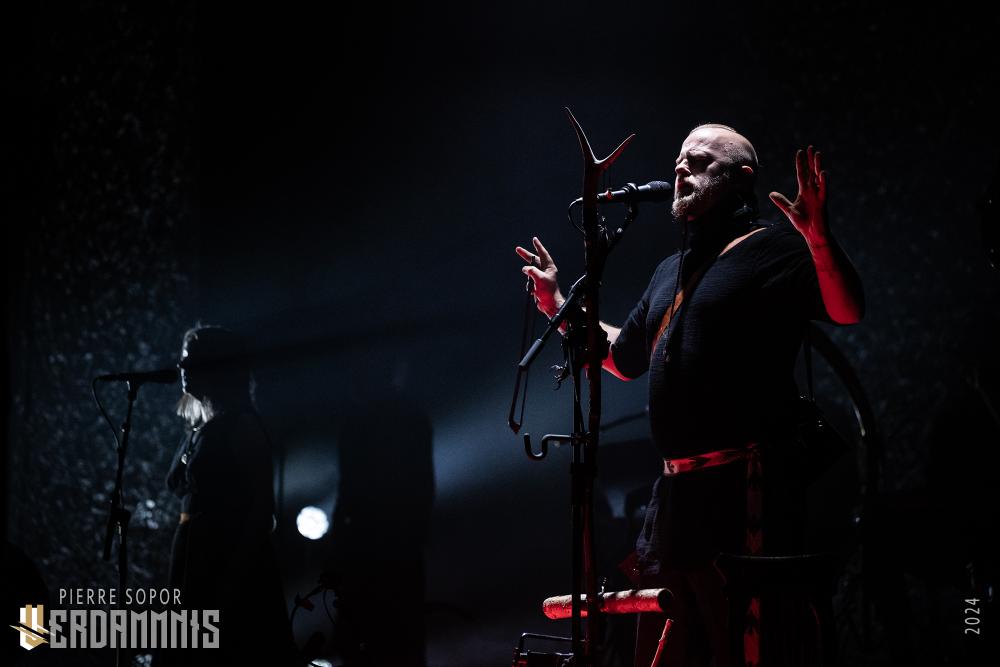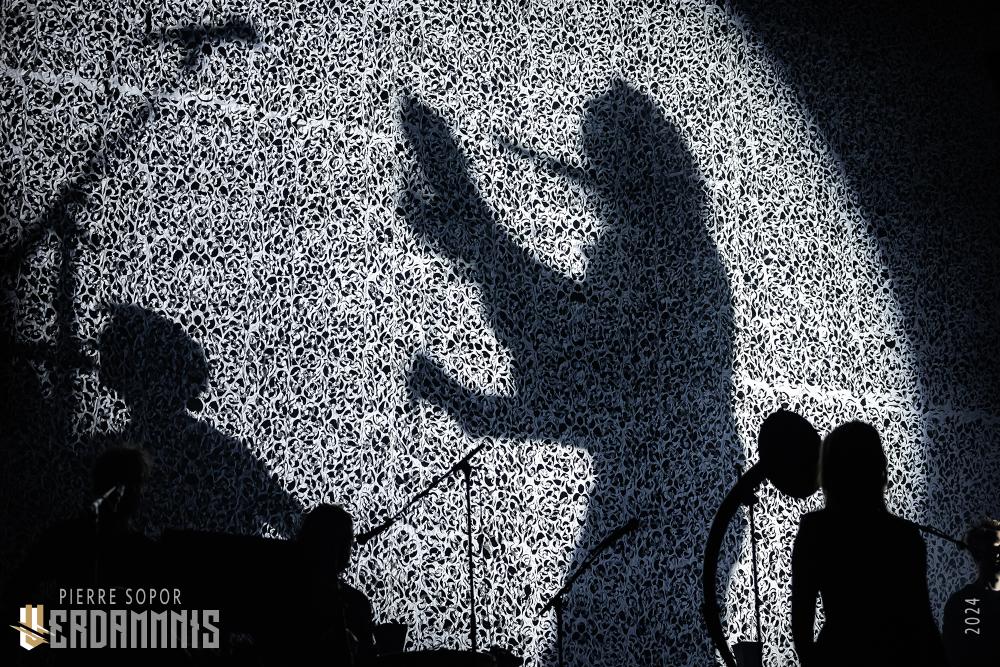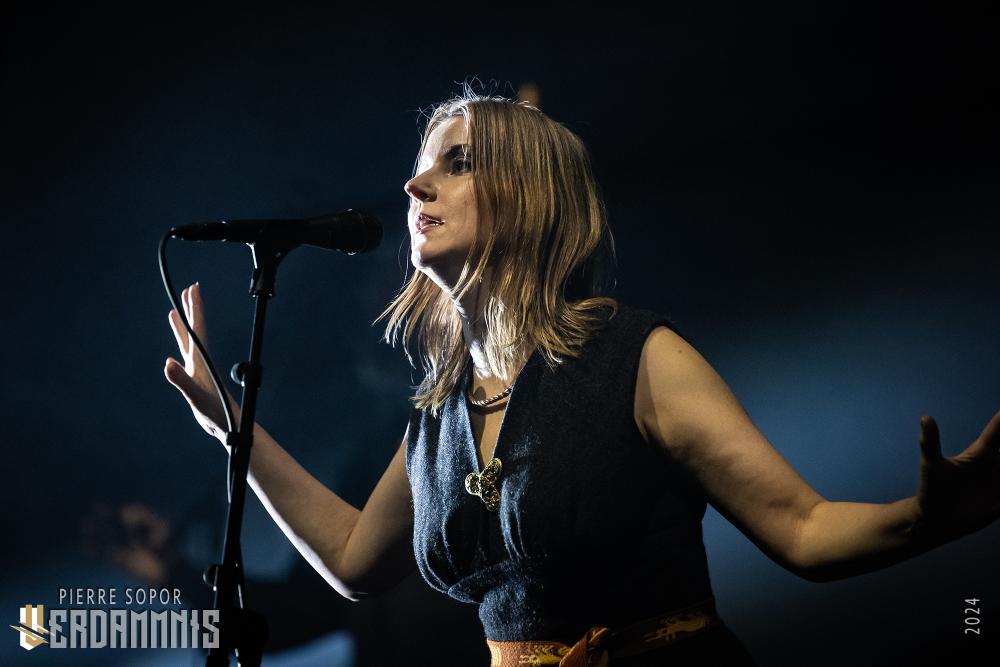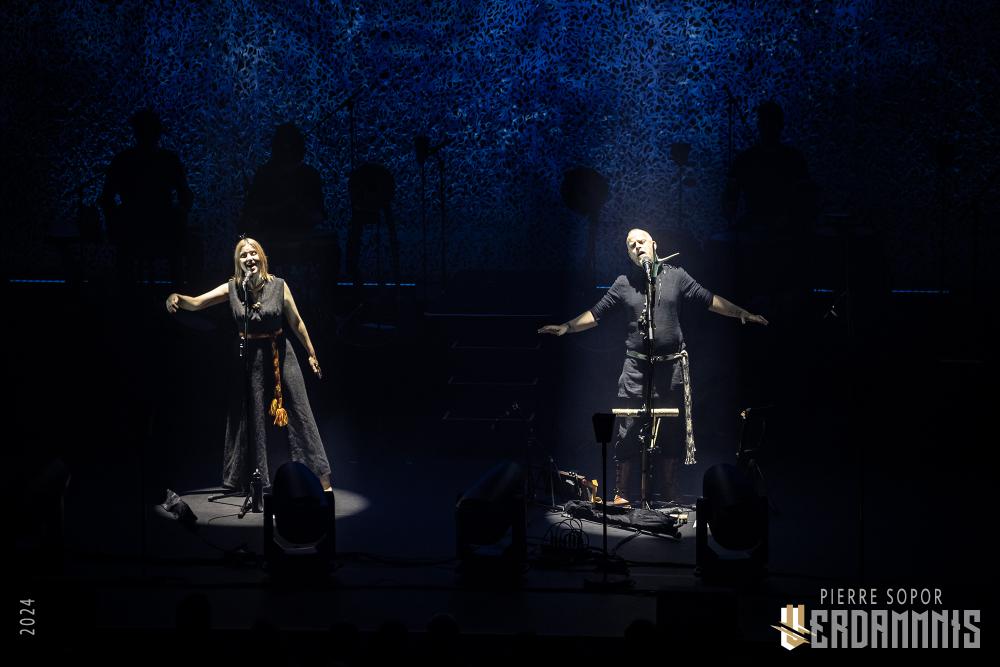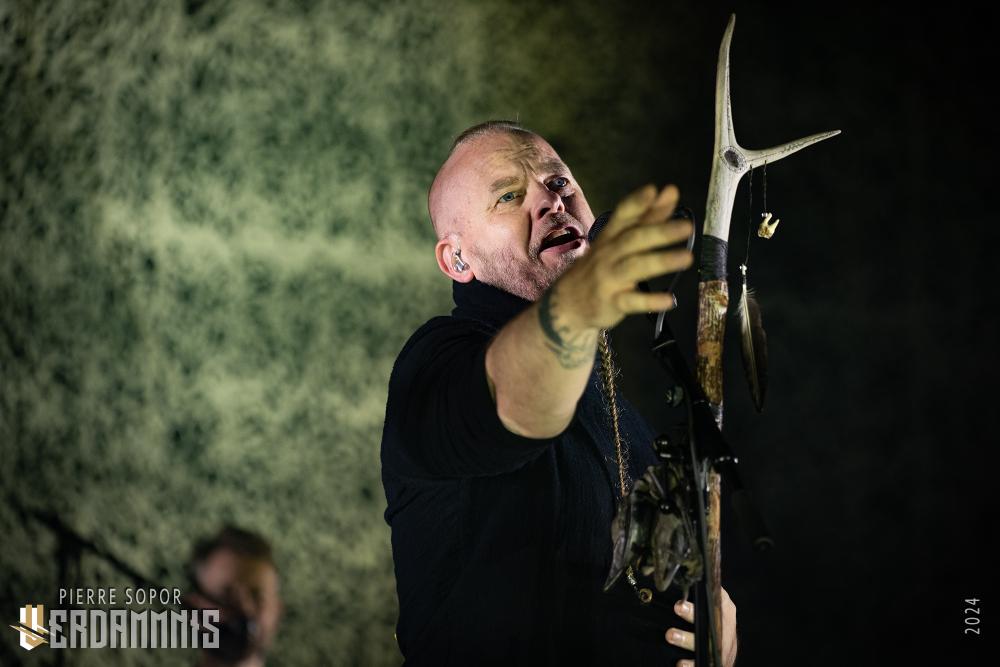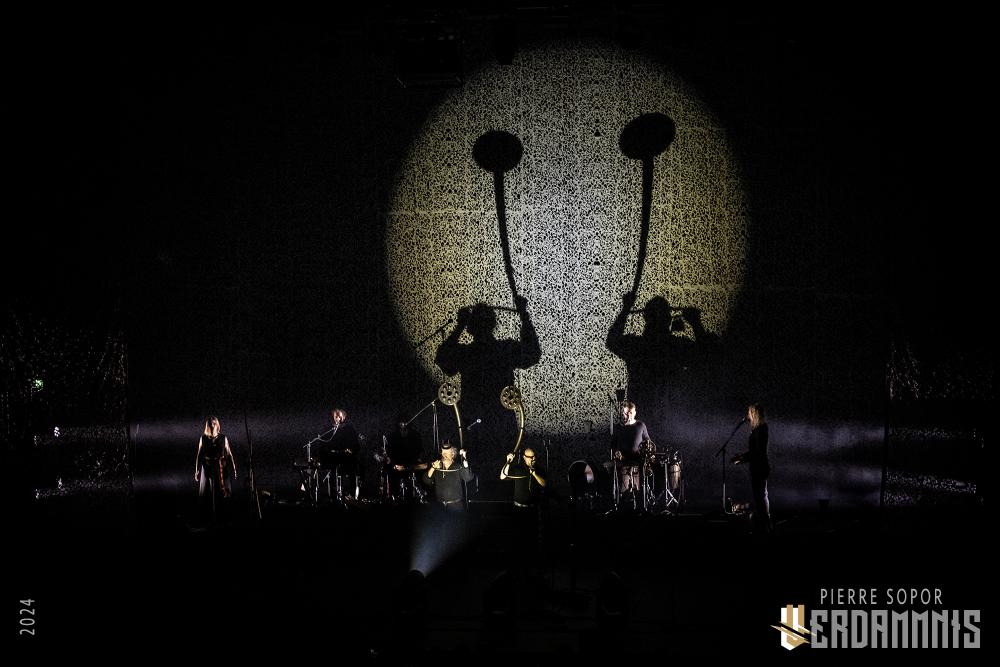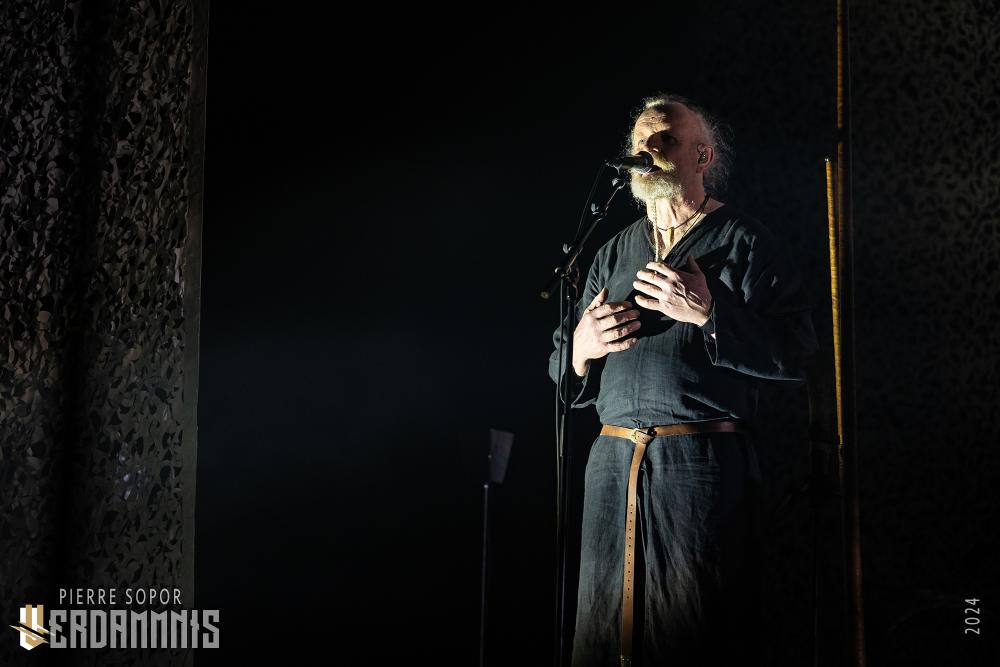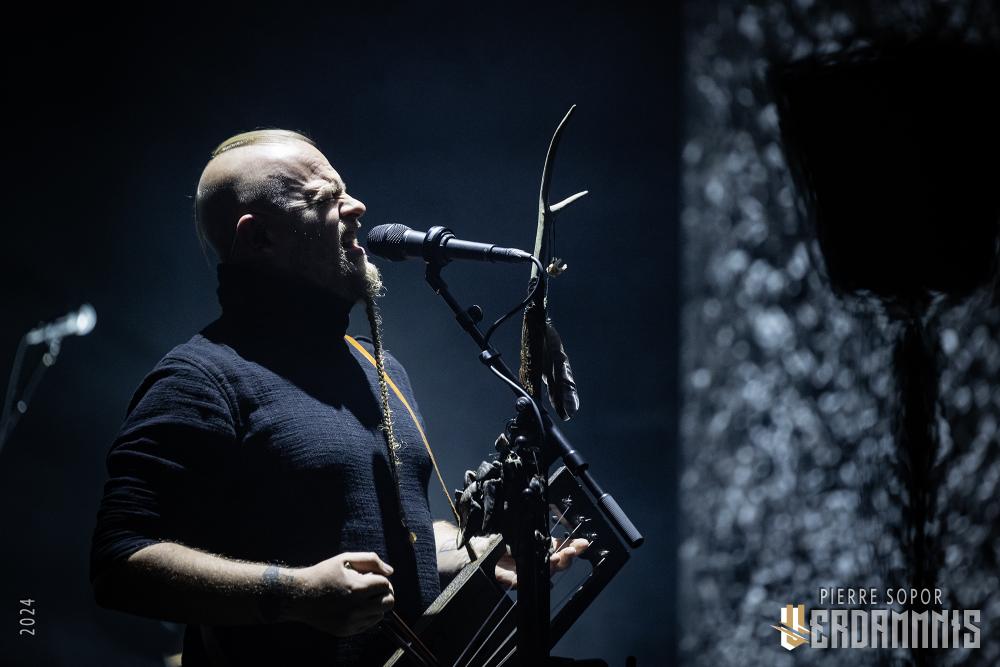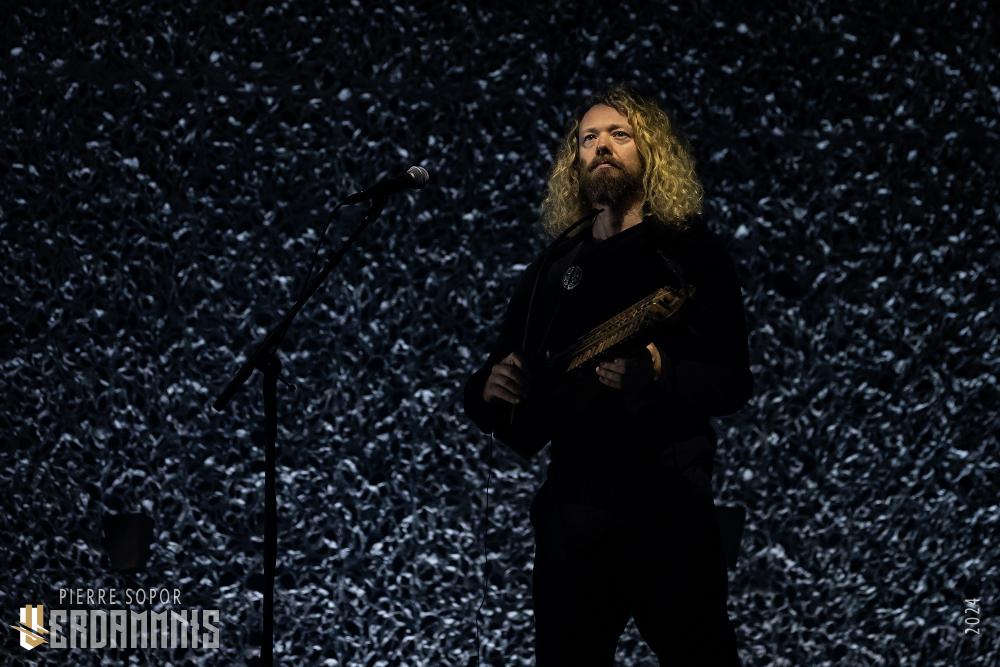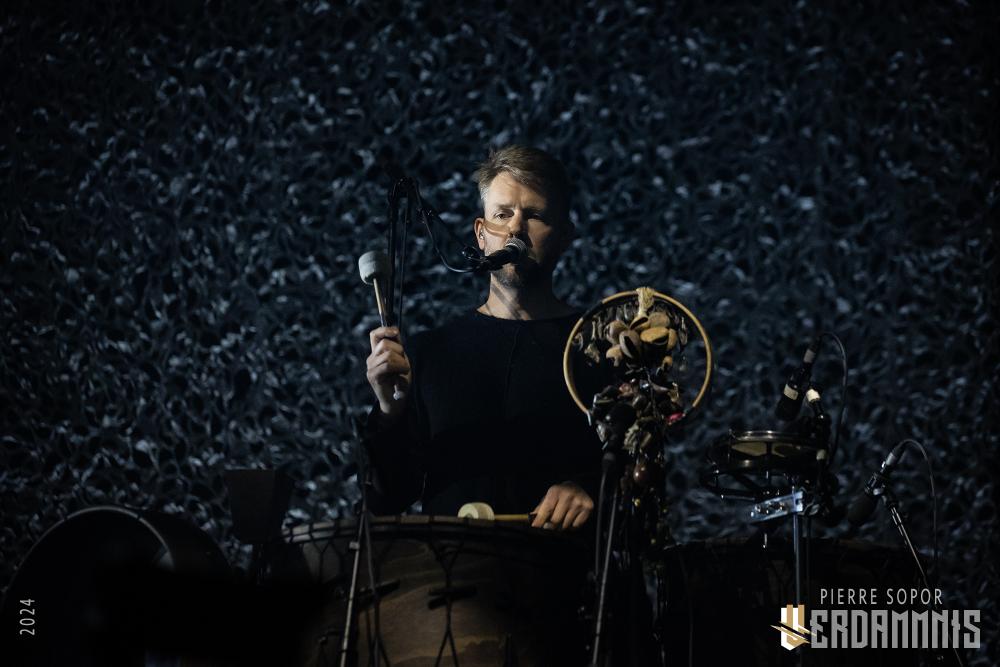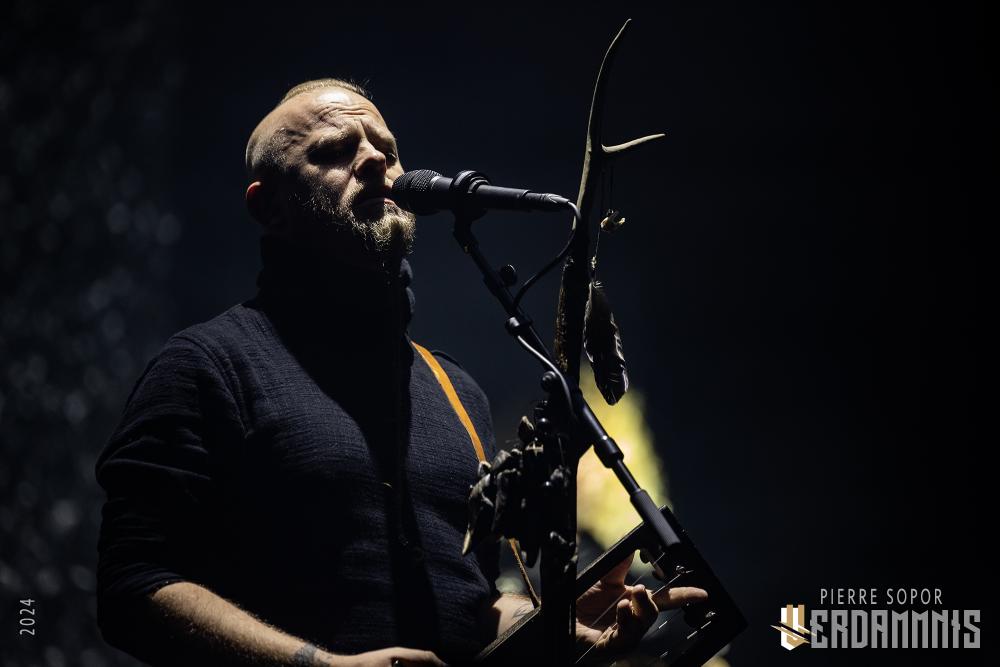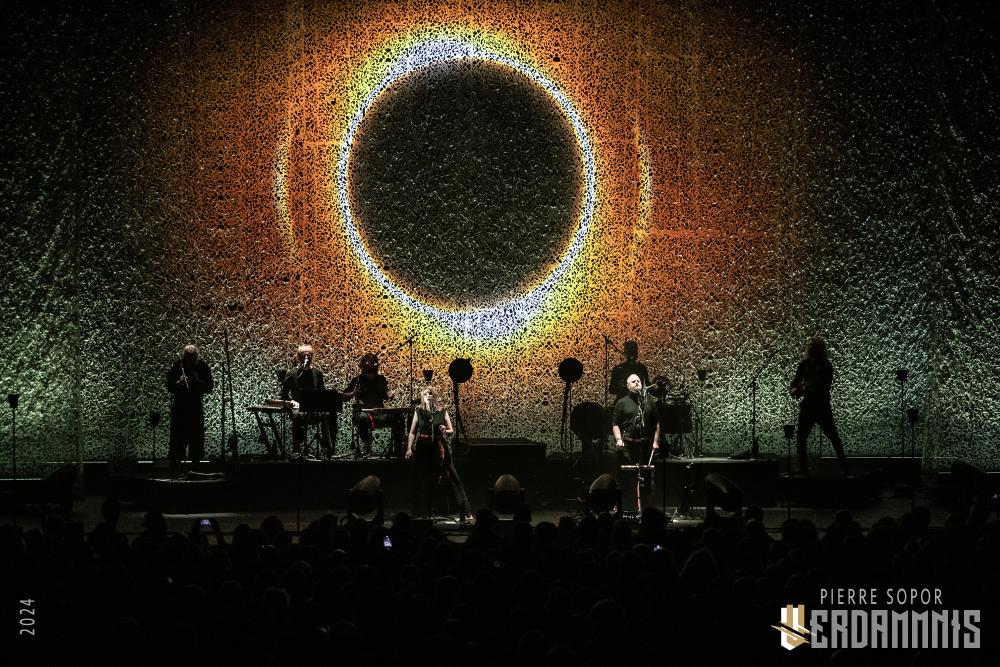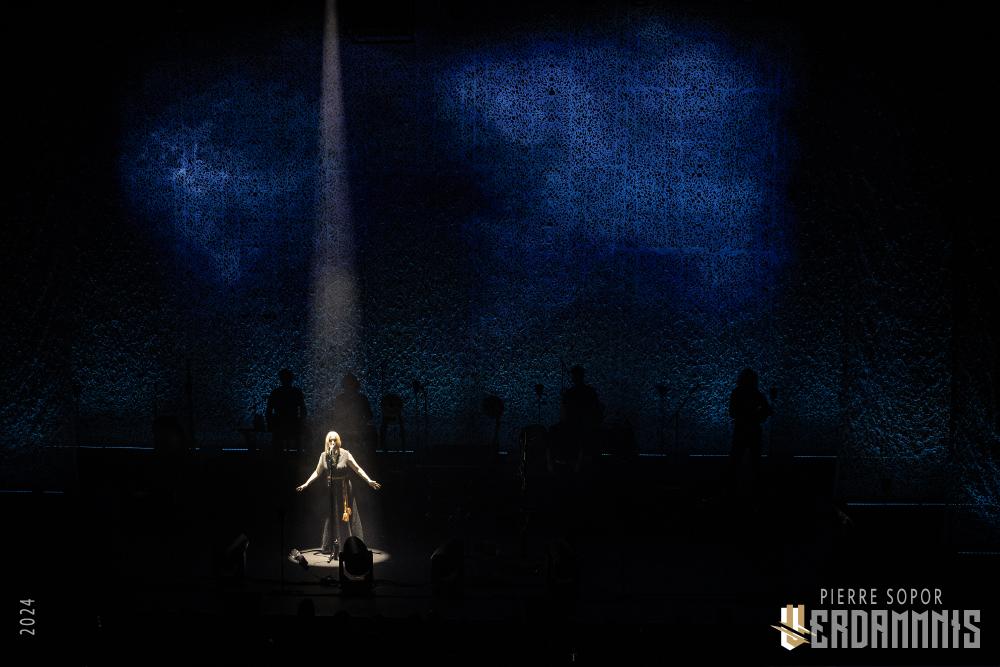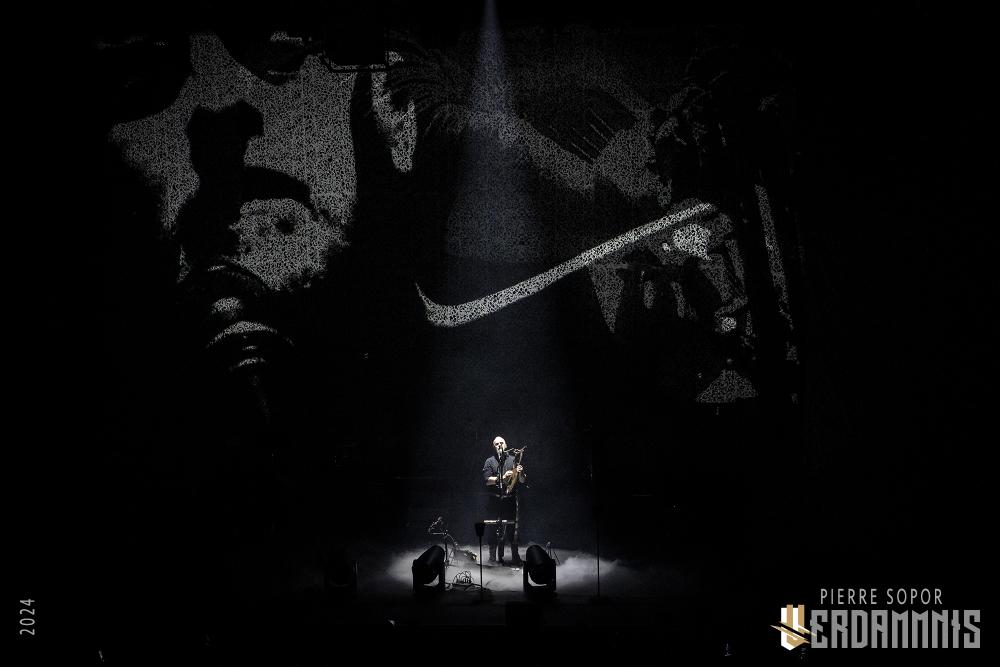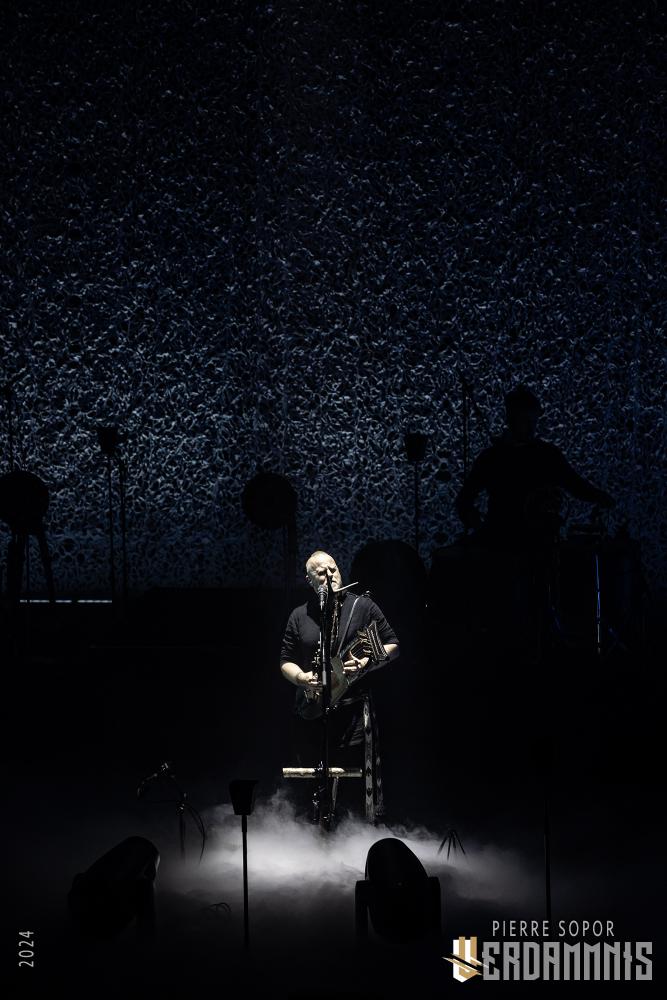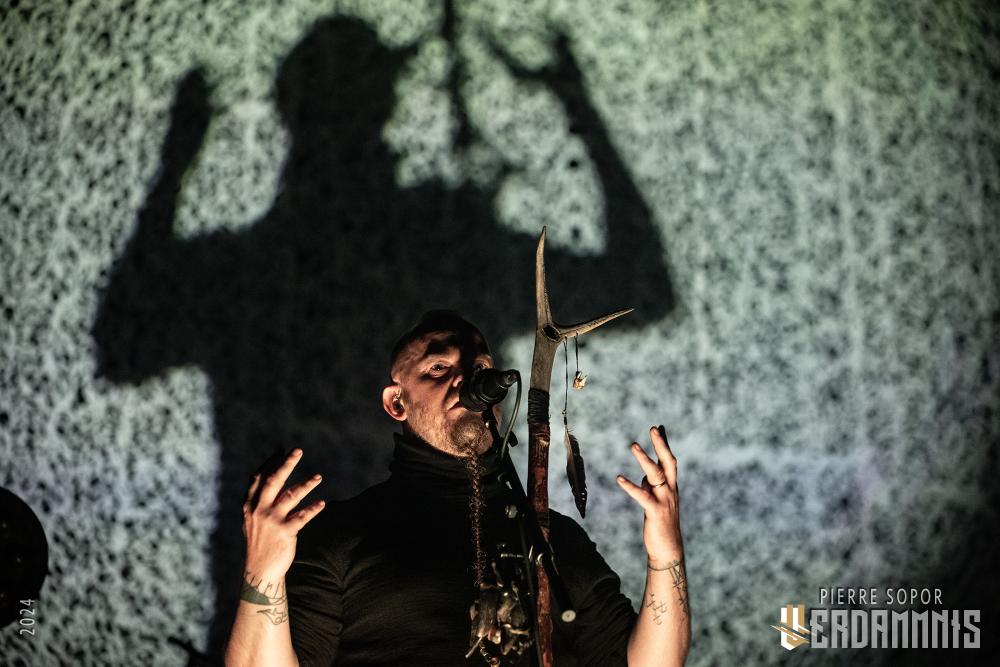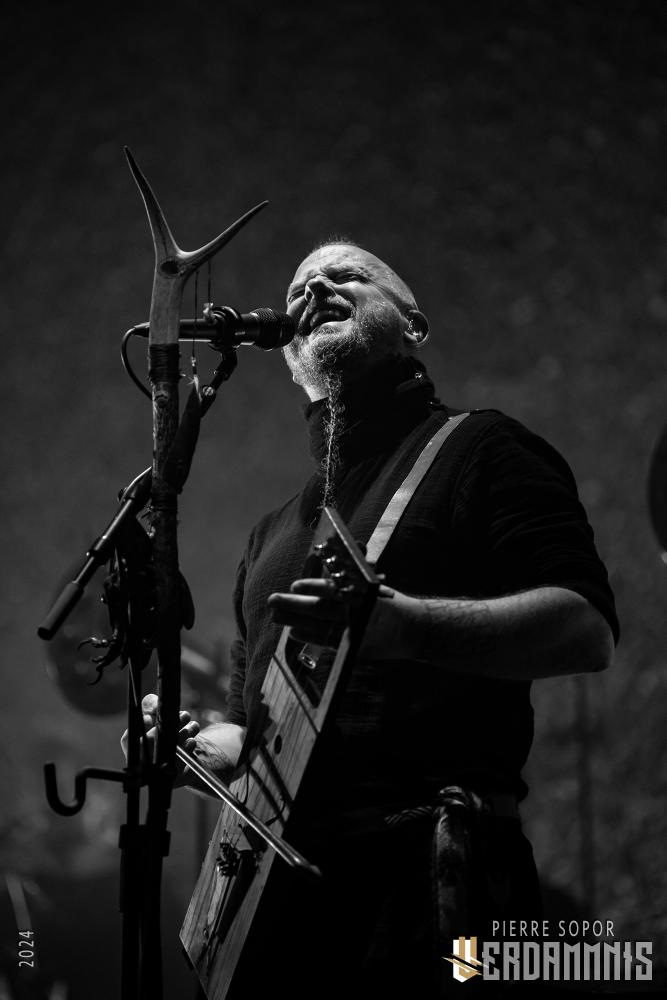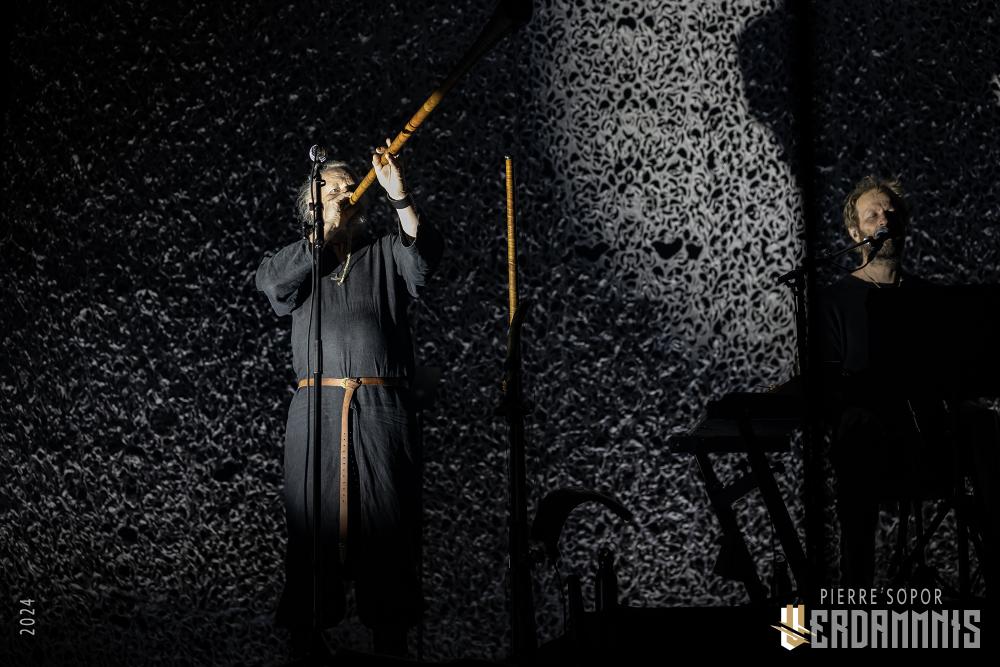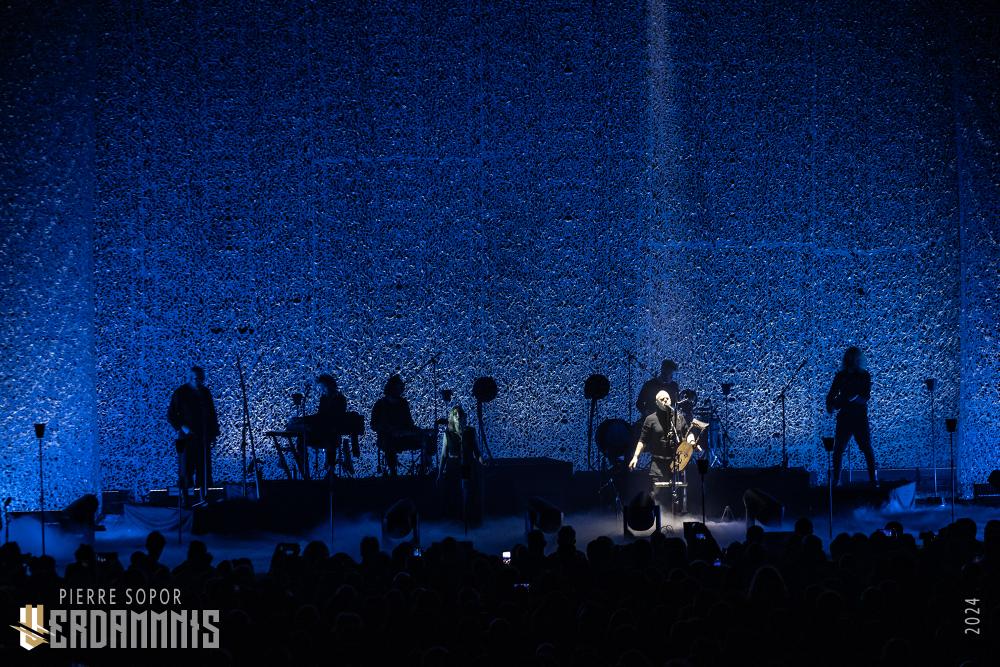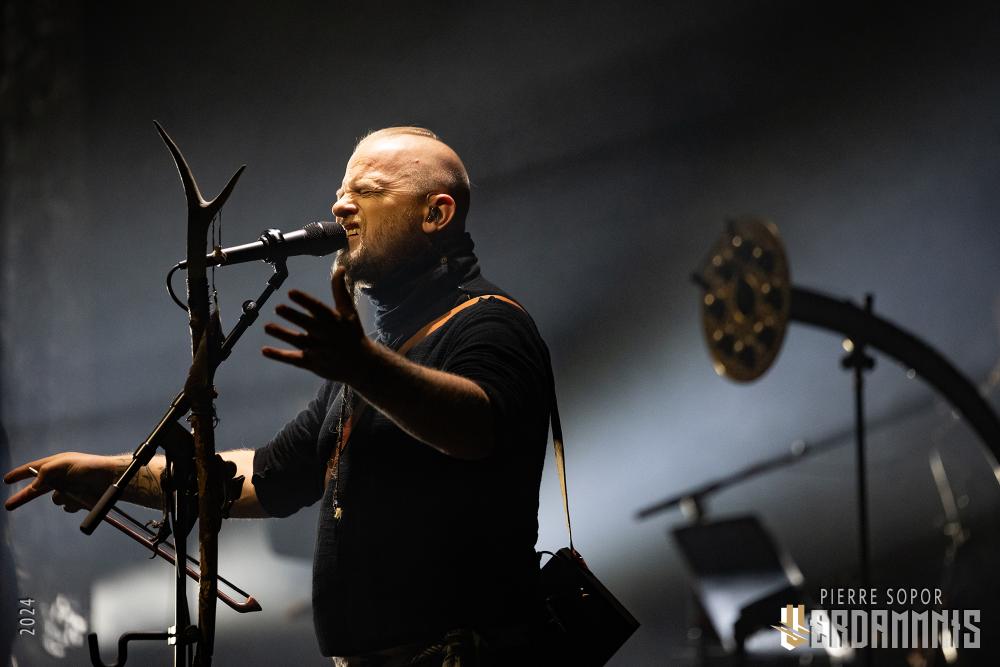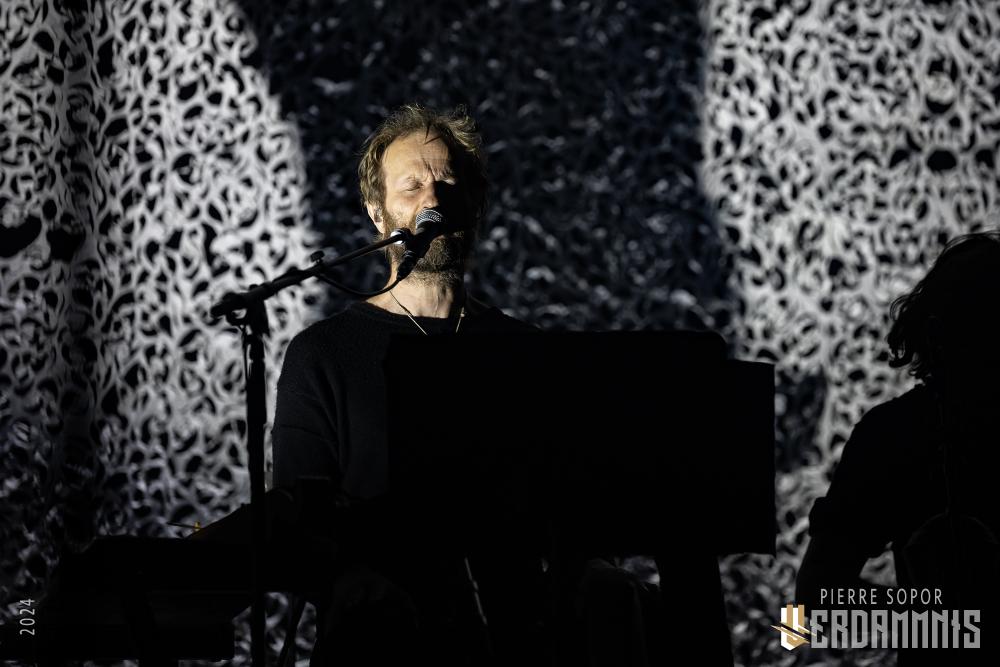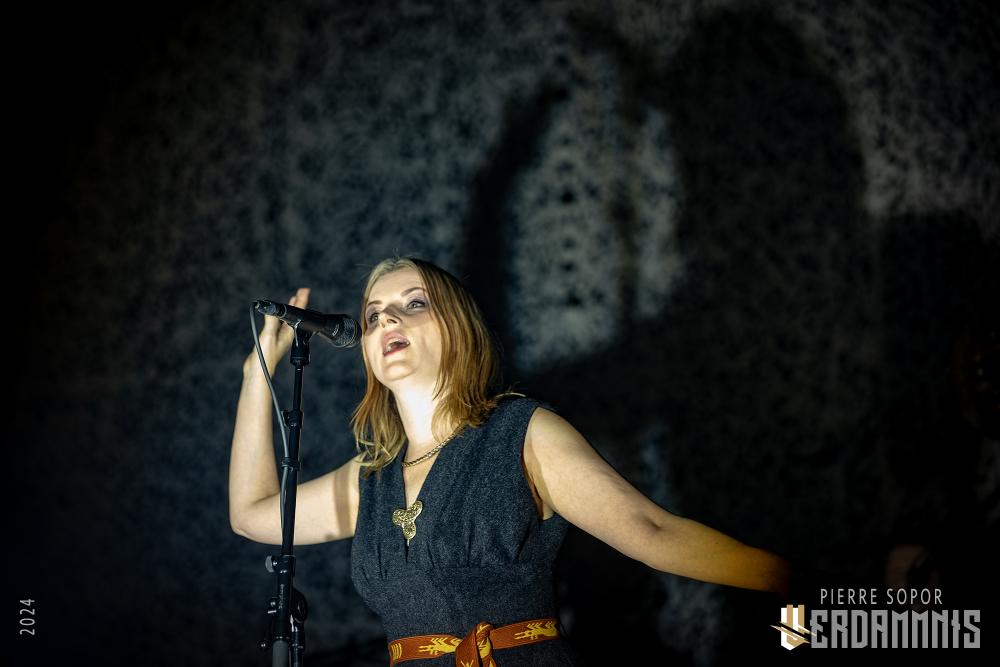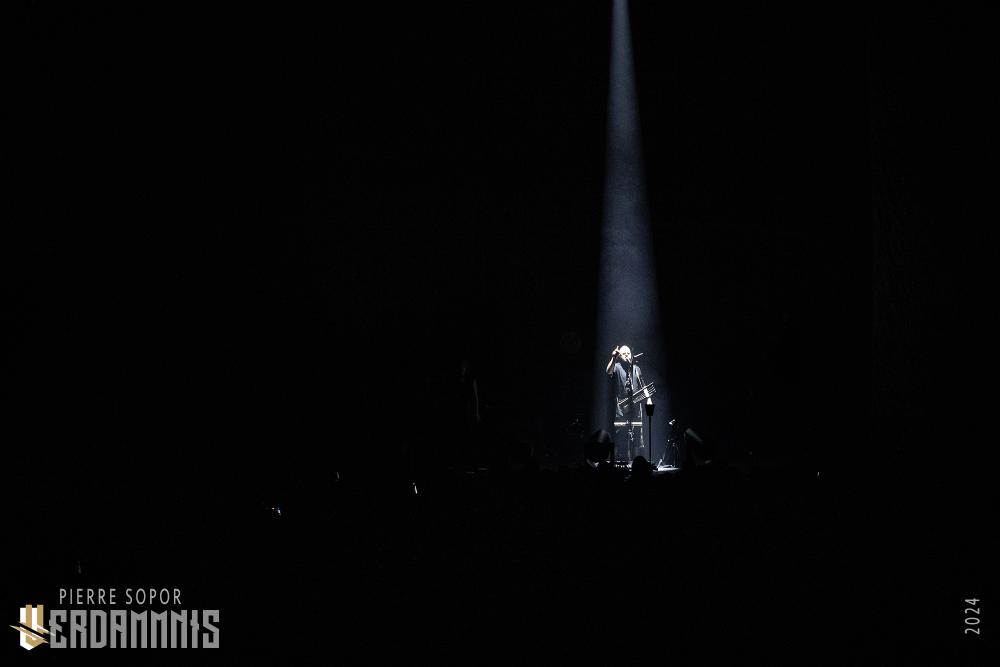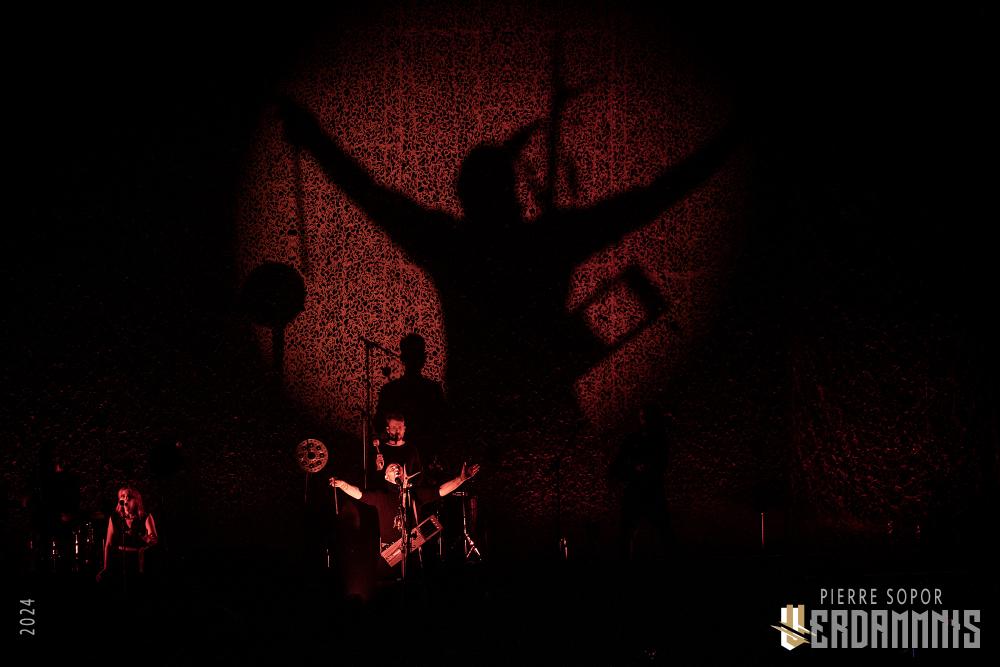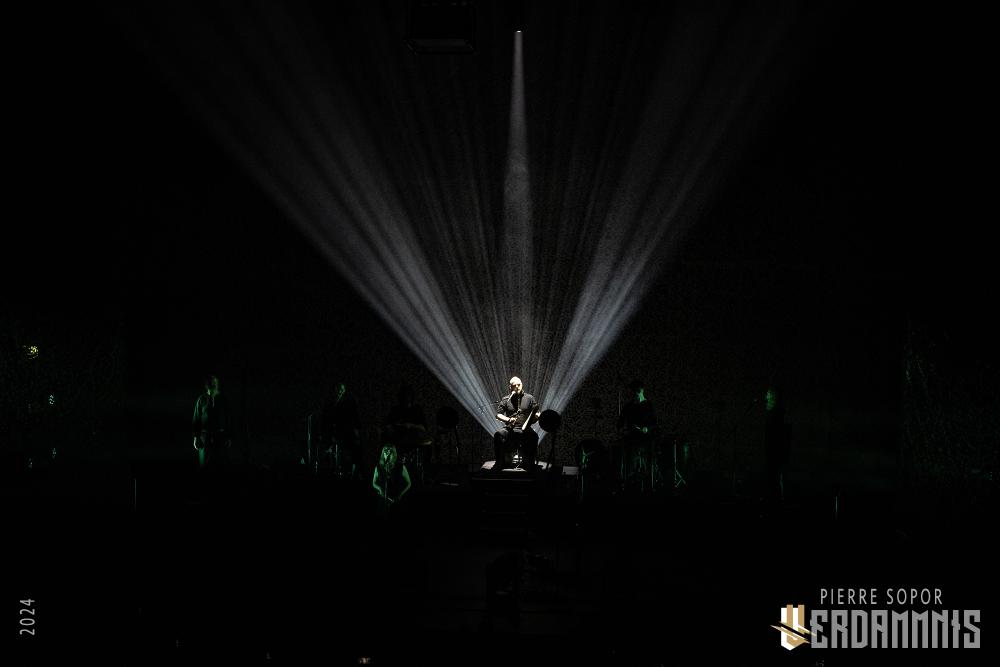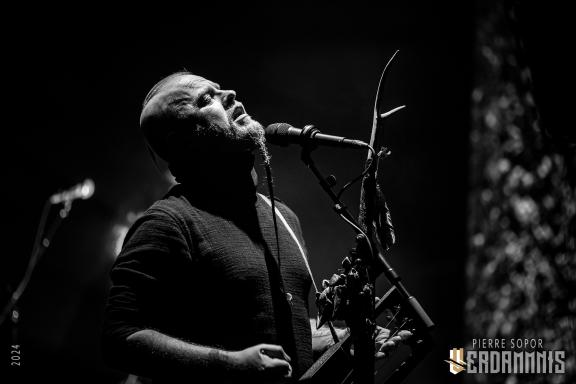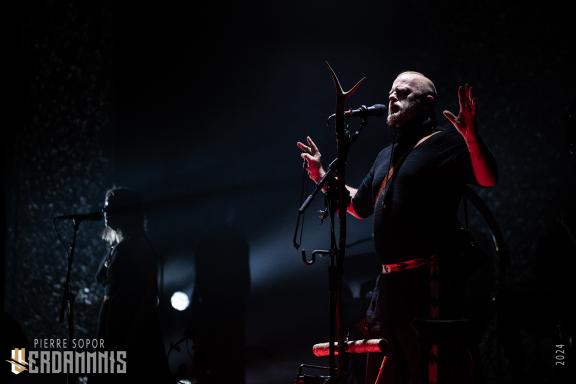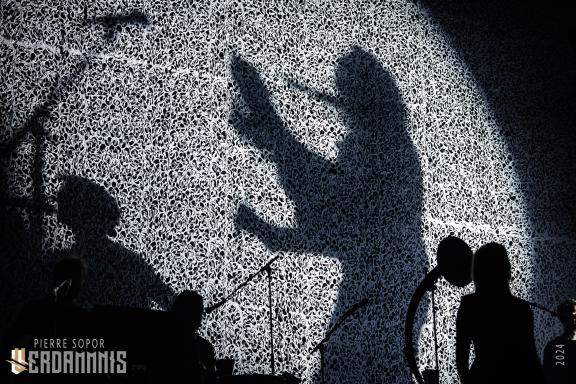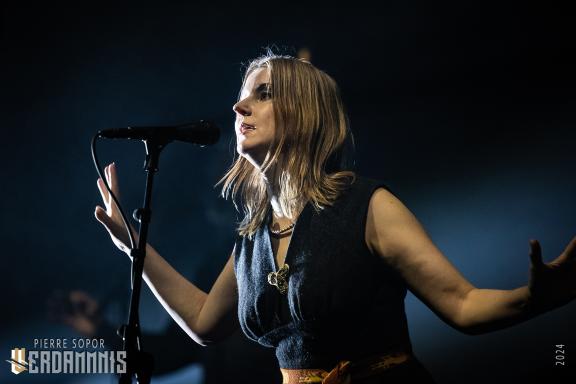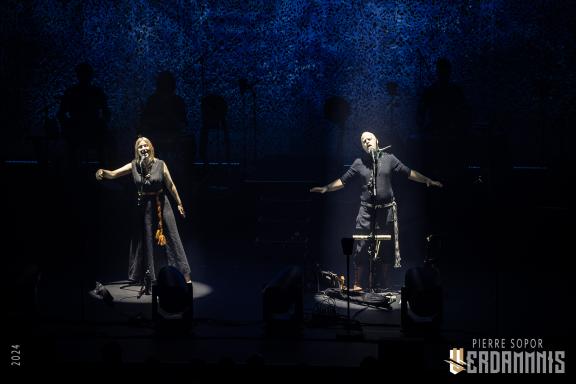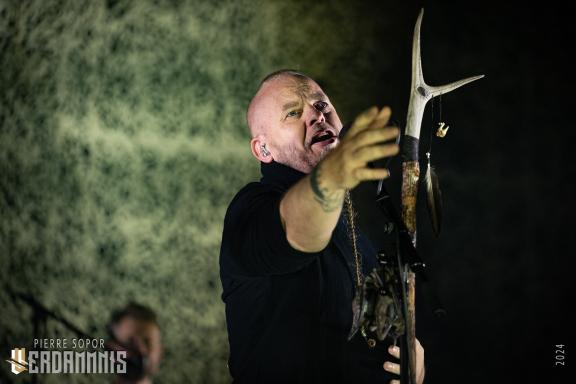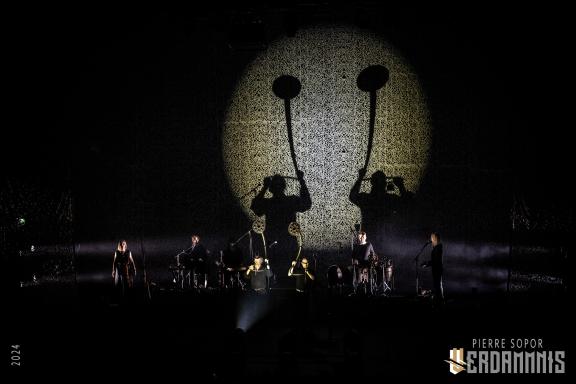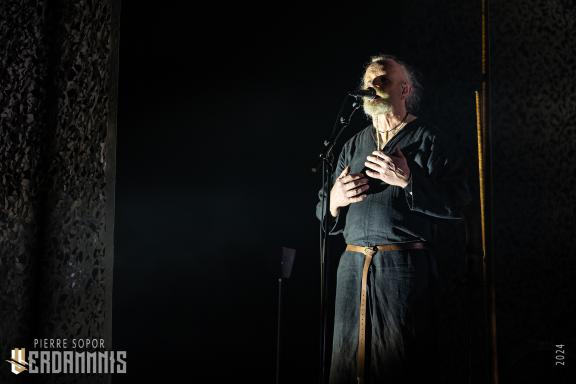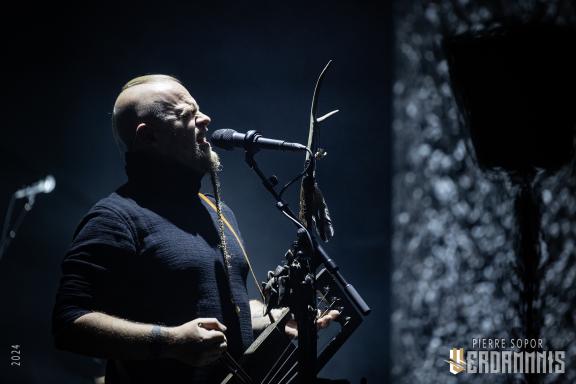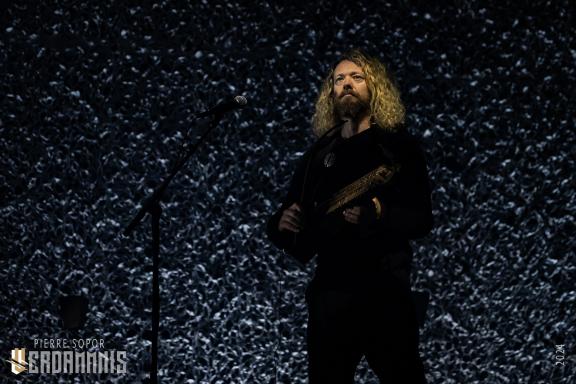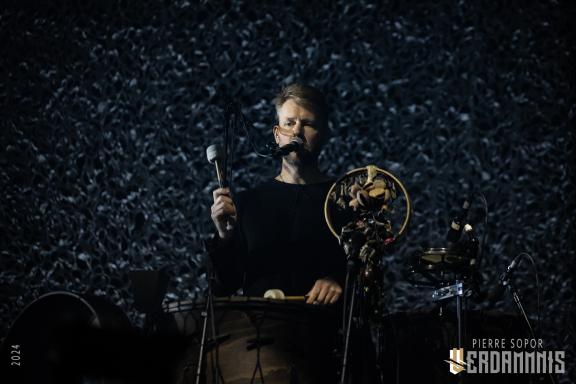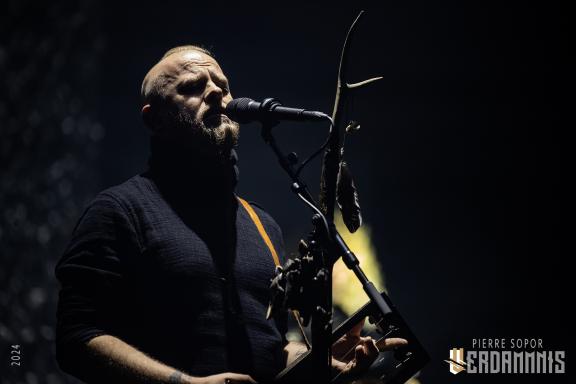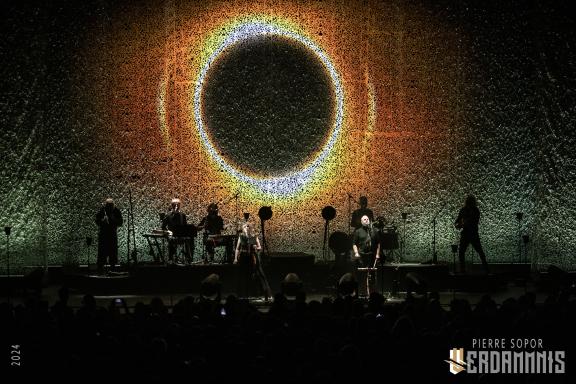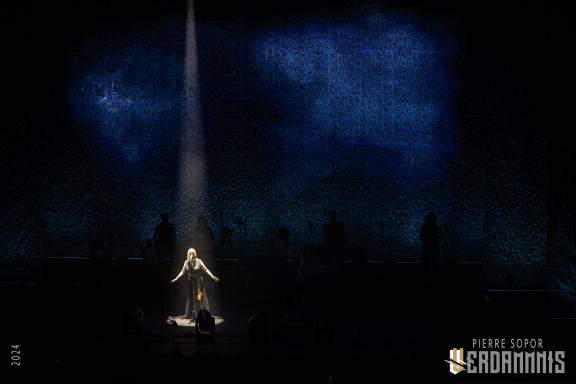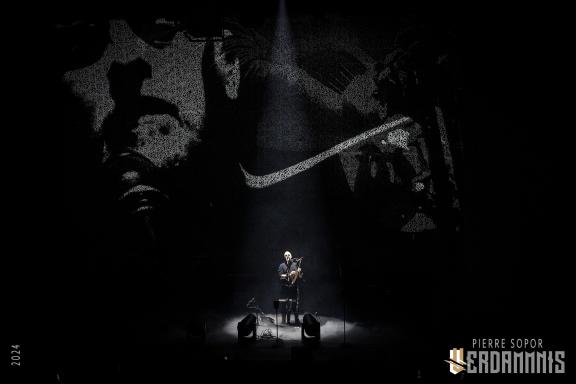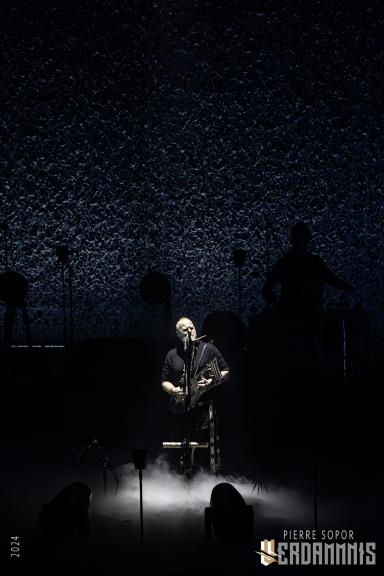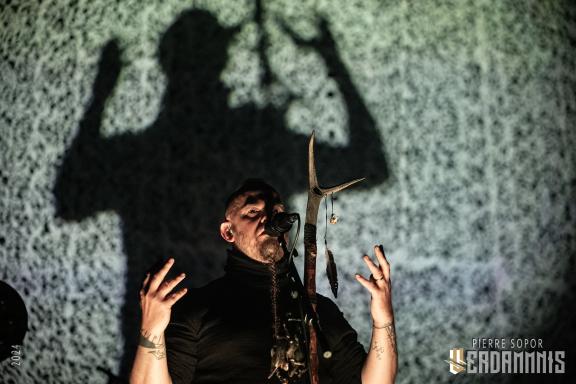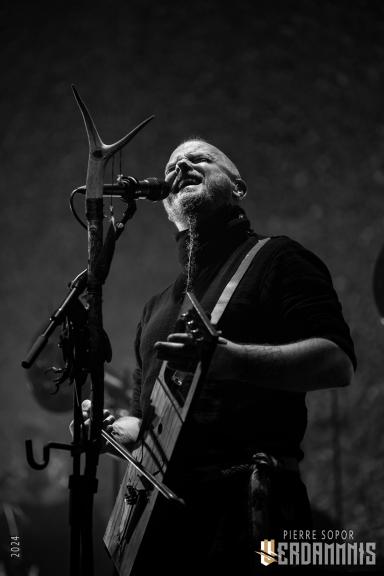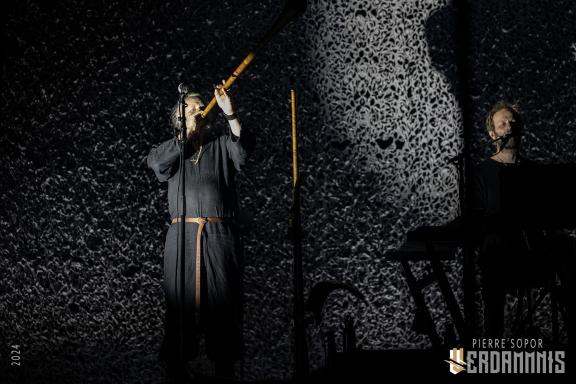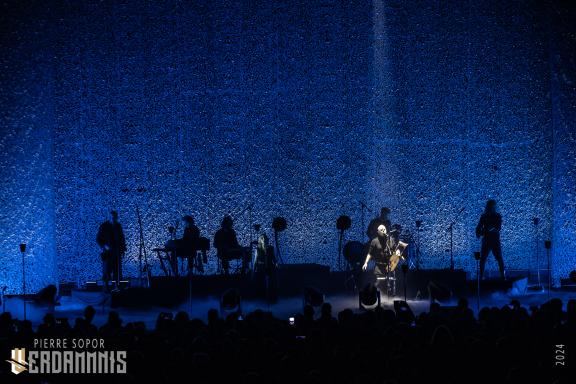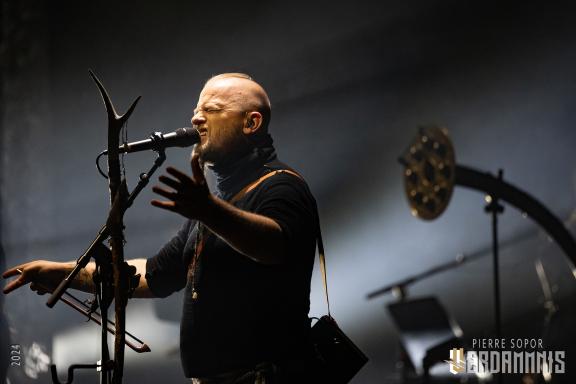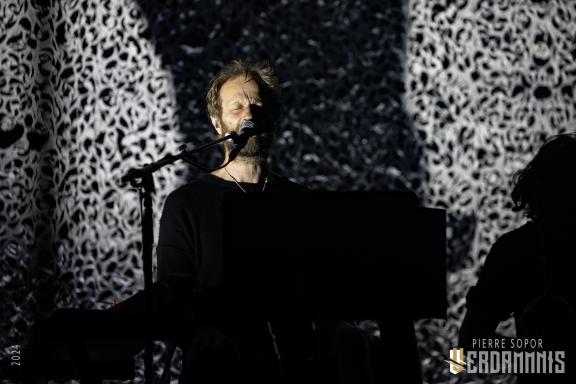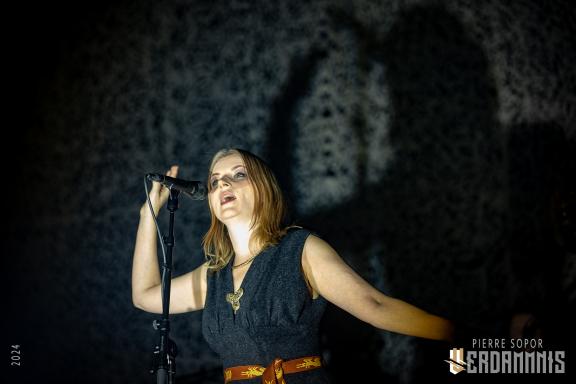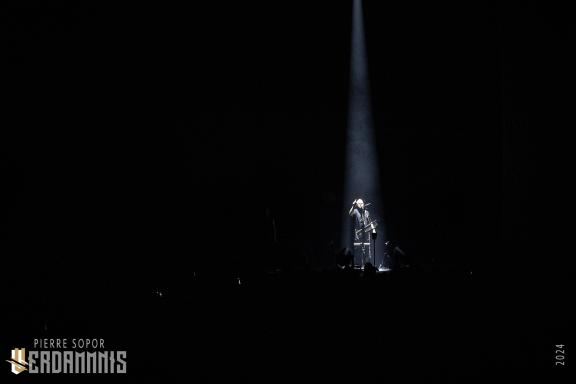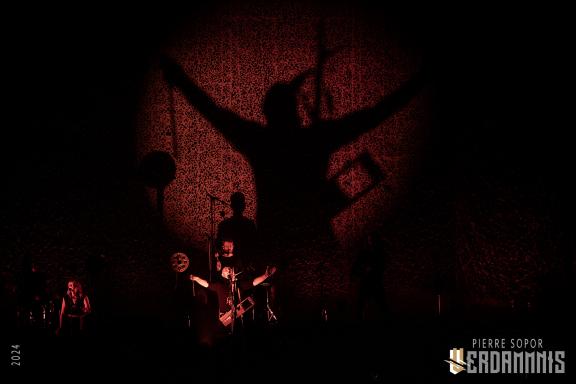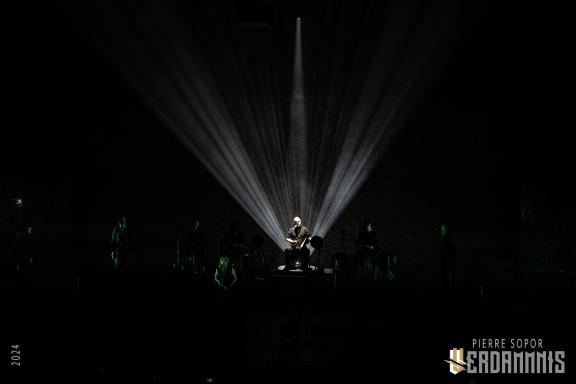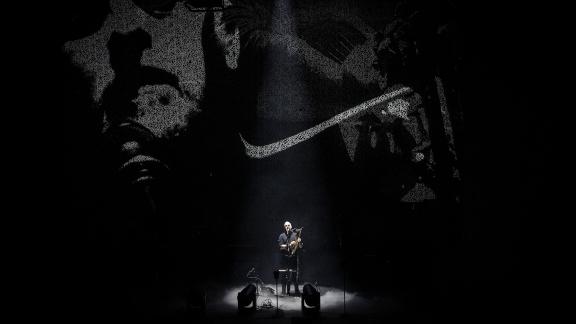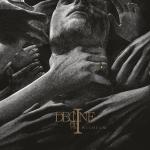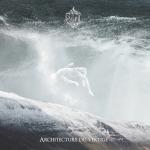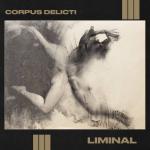Wardruna were back in Paris and, true to form, they weren't playing just anywhere. After the Olympia two years ago, Einar Selvik and his troupe took to the famous Salle Pleyel stage for an evening organized by Garmonbozia. There, the staff is as beautiful as the luxurious neighborhood, everyone is clean and says “bonjour monsieur, bonjour madame” with a smile, and beers are enjoyed near the bar but certainly not in the pit. It's easy to feel intimidated but it sets the theme for the evening on every level: elegance is the key. We take note: obviously, Vikings also know how to behave when they're in society. When you step off your drakkar to find yourself in Pleyel, you immediately feel a little rustic and don't want to show off too much.
JO QUAIL
Before the Wardruna ritual, the fantastic cellist Jo Quail was already imposing a certain contemplation. Having opened in Paris for other bands a few times, the locals know her well: “I saw her before Alcest”, “she also played before Amenra”, “wasn't she at Hellfest in 2019 too?". The audience murmurs, exchanges experiences and anticipates the musician's arrival on a stagethat is already set for Wardruna. She has to find her place between the spotlights, the returns and all the rest.
Jo Quail's music is meant to be experienced live. In the past, we've seen her with stronger progressive and metal influences. Lately, the British musician has been experimenting with more atmospheric and experimental sounds. Tonight's set was more introspective than a few years ago, in cohesion with the overall spirit of the evening, although the tracks played weren't necessarily from yesterday.
As usual, she imposes a respectful silence that no one dares break, her bow holding some kind of holy authority. When she wields it, time stands still. With closed eyes, she weaves a music that is both dreamlike and mystical, creating an intimate bubble that gradually swells to absorb the entire hall. The pieces last ten minutes and she only plays three. It's as beautiful as it is epic, even thrilling. Their construction gradually takes hold of our breath, which we were already politely holding. This is Pleyel, we're not going to start panting like calves.
Soothing or tempestuous, like the sea that inspires Adder Stone at the end, the set is magical. We think back to those people who told us they'd already had the chance to hear Jo Quail's music opening for one act or another... What if, next time, we could see her as headliner, as a tour cancelled by a bloody pandemic had led us to hope a few years ago? We'd love to see her stop time a little longer!
WARDRUNA
There can be many reasons to respectfully tease Wardruna. You might find that the scenography hasn't really evolved over the last few years. You may be amused by a show that revolves around its master of ceremonies Einar Selvik. We can also get tired of the pagan / nordic folk fashion and its cohorts of imitators who reproduce a few limited sounds in loops. However, Wardruna live is not only the promise of a classy concert, but also of music as subtle as it is visceral. As the years go by, the Norwegians, with their sincere approach to musical research, are finally the best antidote to all the flashy fashions of opportunistic Odin worshippers who content themselves with a few martial percussions and pretty costumes to lure the crowds in.
The group is currently between two albums: Kvitravn is over three years old and its successor Birna is approaching but has not yet emerged from its lair. The set therefore feels like the end of a cycle, as we are once again treated to the poetic and hypnotic opening track of the latest album, which we wouldn't trade for anything in the world. Behind the static musicians, their tenfold shadows are projected and come to life. These giant silhouettes, jötunns from Norse mythology, plunge us into a phantasmagorical universe, another reality: this is the time of timeless, immemorial tales and wild spirits.
Although the bodies on stage are hardly animated, they impose a solemnity and sobriety that serve the purpose. Wardruna is not a funfair. You don't go there to bellow “skol” while brandishing your drinking horn, nor to imitate animal cries. And yet, despite the apparent austerity, the theatrical lighting effects give the evening its mystery, its romanticism, its poetry, its madness too, when, during a trance under strobe lights, the shadows mutate into panicked spectres. The balance is just right, and by sparing its effects to serve them up at just the right moment, Wardruna succeeds in never diminishing the power of its show. All the better to admire, wide-eyed, the evocative play of light.
It is, as usual, staggeringly beautiful. The poignant lamentations of Selvik, a melancholy and charismatic skald, are sometimes concluded with an impressive primitive growl. We savor the research, the variety of sounds, the refusal once again of easy spectacle and lazy gimmicks. Dark and ageless, like the recent Hertan, the funereal incantations of Runaljod, the moment when Selvik alone interprets Voluspá in the half-light of a spellbound hall, or Helvegen and its deep pulsations, Wardruna's music is a ritual that invites reverie.
Of course, for those who were already familiar with it, there are no real surprises. Like all good rituals, a Wardruna show is codified. But what they offer is unique in its elegance and achievement: what if, even more than the beautiful set design, what we liked best about Wardruna was their intelligence in leaving the audience the space to transpose their imaginations? The band's poetry brings images and symbols to life, but above all awakens buried, obscure things that everyone can take the time to contemplate and offer them enough space to breathe and wander.

